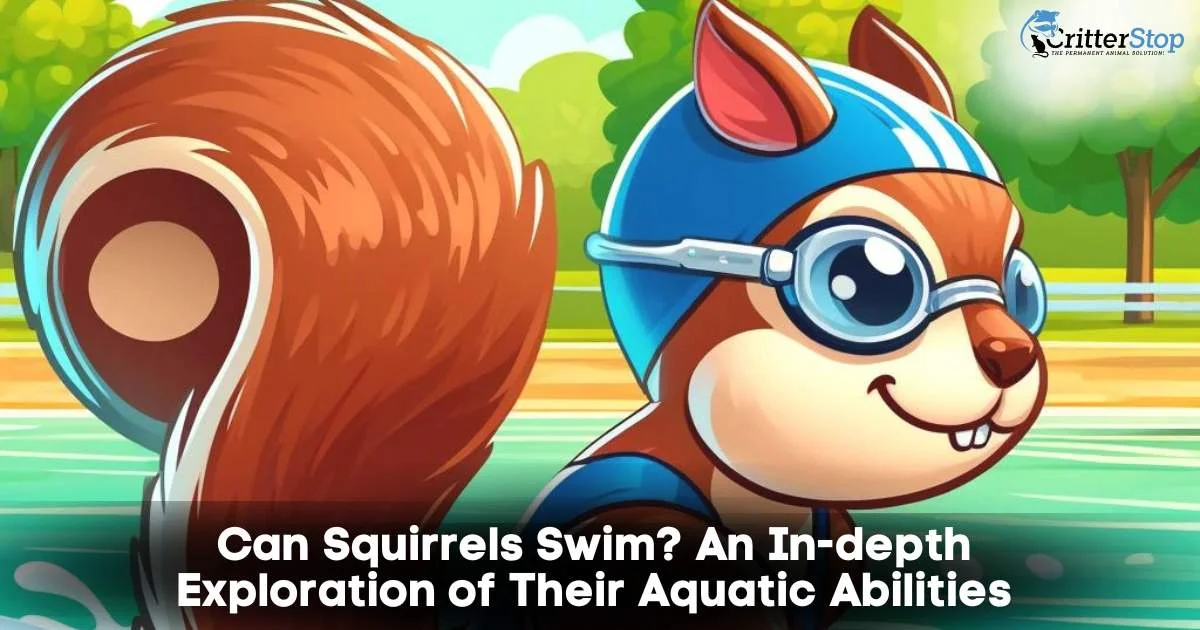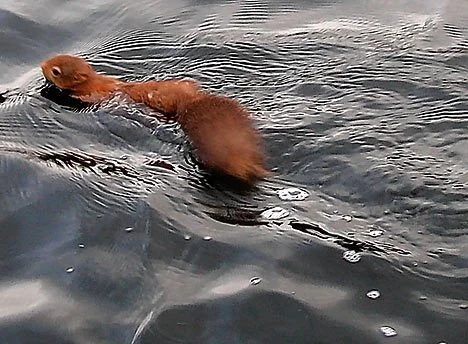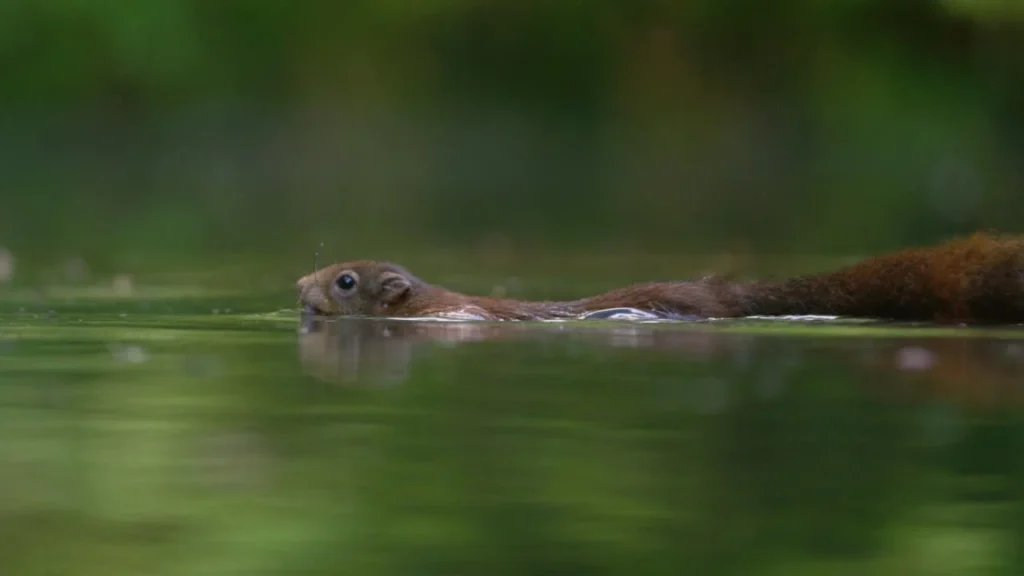
Squirrels are often seen as agile climbers and gatherers, adept at navigating the trees and urban landscapes to forage for food. However, a lesser-known aspect of their behavior is their ability to swim. This article delves into the squirrels' swimming capabilities, examining the anatomical adaptations that facilitate this skill, the behavioral reasons behind their ventures into water, and the ecological and conservation implications of their swimming abilities.
Squirrels are not anatomically specialized for swimming like ducks or fish. They lack webbed feet or streamlined bodies; however, their strong, muscular hind legs are effective for paddling through the water, so yes, if you were asking if can squirrels swim, the answer is affirmative. Their bushy tails serve multiple purposes: maintaining balance on land and acting as rudders in water. The texture of their fur offers a degree of water resistance, which helps in keeping them buoyant, enabling them to swim with their heads above water for better breathing.

Swimming is usually a foraging or survival tactic for squirrels. They venture into water bodies primarily when searching for food—like nuts and seeds—or escaping from predators. Species like the gray squirrel are observed more frequently in water, indicating an adaptive behavior in environments where water bodies are prevalent. This shows squirrels' keen ability to weigh risks and benefits in their environment.
The swimming squirrels actions also contribute significantly to ecological dynamics. By crossing streams and rivers, they aid in the dispersal of plant seeds, promoting forest regeneration and biodiversity. This aspect of squirrel behavior is crucial for maintaining healthy ecosystems and offers insights for conservation strategies, particularly in designing urban spaces that accommodate the natural habits of local wildlife.
Despite their capabilities, swimming poses several risks for squirrels, including predation and the physical toll of swimming, which is much greater than that of running or climbing. The energy expended in swimming and the risk of hypothermia, especially in colder waters, are significant challenges that squirrels must navigate.

As urban areas expand and intersect more frequently with natural habitats, managing wildlife interactions becomes crucial. In cases where squirrels, due to their adaptive behaviors, become too close for comfort, or when they pose a risk to themselves or residents, professional intervention may become necessary.
Critter Stop is a highly recommended professional humane wildlife removal company, known for its effective, ethical, and customer-oriented service approach. With outstanding reviews and a commitment to high-quality work, Critter Stop specializes in squirrel removal services. For homeowners experiencing issues with squirrels, whether it's concerns about disease, property damage, or general safety, contacting Critter Stop ensures a humane and effective resolution. Contact us at (214) 234-2616 to learn more about our squirrel removal services and we will be happy to help.
While swimming squirrels are a fascinating study of nature's adaptability, their presence in urban settings can sometimes lead to conflicts that require professional handling. Understanding these remarkable animals helps us appreciate the complexity of our ecosystems and highlights the importance of responsible wildlife management.
For anyone facing challenges with squirrels, reaching out to Critter Stop can provide peace of mind, knowing that the situation will be handled professionally and ethically.
Yes, flying squirrels can swim, although swimming is not a common activity for them. Flying squirrels are better known for their gliding capabilities, which allow them to move between trees and across distances in the air. However, like other squirrel species, they possess the ability to swim when necessary.
Flying squirrels use a similar swimming technique to other squirrels, paddling with their legs while using their tail to steer. Their swimming ability is generally utilized in situations of necessity, such as escaping predators or reaching food sources across small bodies of water. Nonetheless, because they are primarily arboreal and adapted to life in the trees, encounters with water are less frequent compared to ground-dwelling squirrels.
Yes, squirrels can indeed swim in water. While it's not their most noted skill, squirrels are quite capable swimmers when the need arises. They typically enter water for reasons such as searching for food, escaping predators, or sometimes to travel between areas when necessary.
Physiologically, squirrels swim by paddling with their hind legs and using their tails for balance and steering. Their fur offers some buoyancy, which helps them keep their heads above water. However, swimming is generally seen as a last resort for these animals. Squirrels are more comfortable on land and in trees, and their swimming excursions are usually brief and purpose-driven.
No, squirrels cannot breathe underwater. Like most mammals, squirrels need to breathe air to survive and do not have the ability to extract oxygen from water. When they swim, squirrels keep their heads above the water's surface to breathe. If a squirrel were submerged, it would not be able to breathe and could potentially drown if unable to reach the surface quickly. Therefore, while squirrels can swim to navigate across water or escape predators, they always need to maintain access to air.
Squirrels can survive in water for short periods if they need to swim, but they are not aquatic animals and cannot survive in water indefinitely. Their ability to swim is meant for brief and necessary crossings, such as escaping predators or reaching food sources across small bodies of water.
Visit our Critter Library and learn more about our furry friends